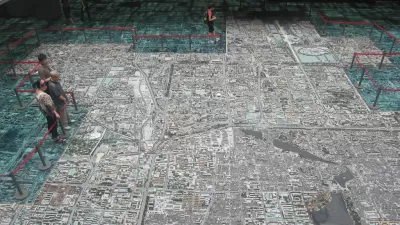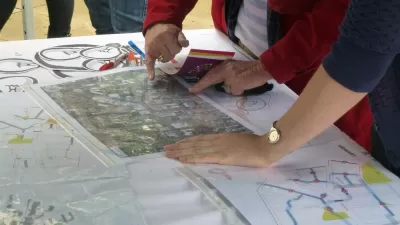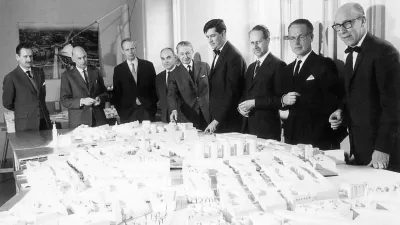In an op-ed for Forbes, economist Carl Schramm argues that "the practice of city planning has escaped reality." He indicts planners, and the plans that cities produce, for ignoring the economic imperatives that constitute a successful city.

For Schramm, a so-called "evangelist of entrepreneurship", an examination of unspecified "plans" for five unnamed "cities" by his unexplained "students" reveals the shameful truth about city plans: "Its highly stylized form, apparently reflective of a settled professional culture, is first and foremost a political document disguised as a physical plan for a specific locale."
While Schramm may have a valid point in criticizing the inadequate analysis and integration of measures of economic success in some planning documents, his overly simplistic hyperbole does his argument no favors.
"If planning is to be helpful it must see cities first as the economic communities that they were at their beginning," he says. While that may be worth debating, demonizing all planners as adherents to the notion that "the growth of government and its control over all aspects of the built environment [is] the pathway to the cities of tomorrow," is certainly not the way to engage them in a productive dialogue.
FULL STORY: It's Time For City Planners To Adapt A New Model

Planetizen Federal Action Tracker
A weekly monitor of how Trump’s orders and actions are impacting planners and planning in America.

San Francisco's School District Spent $105M To Build Affordable Housing for Teachers — And That's Just the Beginning
SFUSD joins a growing list of school districts using their land holdings to address housing affordability challenges faced by their own employees.

The Tiny, Adorable $7,000 Car Turning Japan Onto EVs
The single seat Mibot charges from a regular plug as quickly as an iPad, and is about half the price of an average EV.

Seattle's Plan for Adopting Driverless Cars
Equity, safety, accessibility and affordability are front of mind as the city prepares for robotaxis and other autonomous vehicles.

As Trump Phases Out FEMA, Is It Time to Flee the Floodplains?
With less federal funding available for disaster relief efforts, the need to relocate at-risk communities is more urgent than ever.

With Protected Lanes, 460% More People Commute by Bike
For those needing more ammo, more data proving what we already knew is here.
Urban Design for Planners 1: Software Tools
This six-course series explores essential urban design concepts using open source software and equips planners with the tools they need to participate fully in the urban design process.
Planning for Universal Design
Learn the tools for implementing Universal Design in planning regulations.
Smith Gee Studio
City of Charlotte
City of Camden Redevelopment Agency
City of Astoria
Transportation Research & Education Center (TREC) at Portland State University
US High Speed Rail Association
City of Camden Redevelopment Agency
Municipality of Princeton (NJ)





























